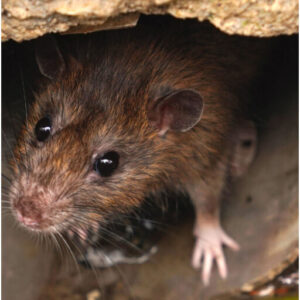
The Top Commercial Pests Affecting Berkshire Businesses (and How to Deal with Them)
Pests can jeopardise hygiene ratings, disrupt operations, and damage reputations. Whether you run a café in Reading, a hotel in Windsor, a warehouse in Slough, or a retail unit in Maidenhead, knowing the most common commercial pests—and how to stop them—keeps your premises compliant and your customers confident.
Below is a practical guide to the pests most frequently impacting Berkshire businesses and the steps to control them using proven Integrated Pest Management (IPM) methods.
1) Rats & Mice
Risks: Contamination, gnawed wiring, stock loss, and health code breaches.
What to do: Seal entry points (pipes, doors, loading bays), maintain strict food and waste hygiene, use monitored baiting/trapping with professional oversight, and record all activity for audits.
2) Cockroaches
Risks: Rapid spread in warm, humid areas; major hazard for food businesses; difficult to eradicate without targeted treatment.
What to do: Prioritise deep cleaning (especially behind/under equipment), remove moisture sources, and implement gel/bait programs with monitoring traps and follow-up visits.
3) Bed Bugs (Hotels, Hospitality, Offices)
Risks: Guest complaints, refunds, and reputational damage; can travel via luggage and soft furnishings.
What to do: Train staff to identify early signs, isolate affected rooms, and use professional heat/chemical treatments with re-inspection. See our Bed Bug Treatments page.
4) Flies
Risks: Food contamination, failed hygiene inspections, customer complaints.
What to do: Improve proofing (air curtains, door discipline), manage waste and drains, install correctly-sized UV fly killers, and service them regularly.
5) Wasps
Risks: Stings to staff and customers; nest activity peaks in late summer.
What to do: Keep bins sealed, remove sugar sources outdoors, and arrange swift, professional nest treatments to minimise disruption.
6) Ants
Risks: Food contamination and persistent ingress to kitchens, serving areas, and staff rooms.
What to do: Identify species, locate nesting sites, and deploy professional baits and residual treatments; address ingress points and housekeeping.
7) Stored Product Insects (Moths, Beetles, Weevils)
Risks: Contaminated stock and costly product recalls in food production/warehousing.
What to do: Implement incoming-goods checks, rotate stock (FIFO), maintain clean, dry storage, and use pheromone monitoring with targeted treatments.
8) Birds (Typically Pigeons)
Risks: Fouling, slip hazards, and branding issues around entrances and loading bays.
What to do: Install proofing (spikes, netting, wires), enforce waste/food discipline outdoors, and use licensed clean-ups with safe waste disposal.
Building a Robust IPM Programme
- Survey & Risk Assessment: Identify hotspots and business-specific risks.
- Monitoring: Use traps and trend analysis to act before issues escalate.
- Proofing & Housekeeping: Seal gaps, manage waste, and maintain high hygiene standards.
- Targeted Treatments: Use the least-disruptive, most effective control methods.
- Documentation: Keep service reports and site plans for inspections and audits.
- Review: Adjust the plan seasonally and after any activity spikes.
Why Choose a Local Commercial Specialist
Local knowledge matters. Seasonal patterns in Bracknell, Newbury, Wokingham, and across Berkshire can vary, and a local team will respond faster and tailor solutions to your premises and sector.
Pest Services Berkshire provides discreet, compliant commercial pest control across the county. Contact us Here for a site survey and a tailored IPM plan for your business.
FAQs
1) How often should commercial sites be inspected?
Monthly for higher-risk sites (food handling, hospitality) and at least quarterly for lower-risk premises, with extra visits during peak seasons.
2) Will treatments disrupt trading hours?
We schedule visits to suit your operations and use discreet methods to minimise downtime and visibility to customers.
3) Do you provide documentation for audits?
Yes. You receive service reports, site plans, bait maps, and trend analyses to satisfy inspectors and internal audits.
4) Can you work across multi-site operations?
Absolutely. We deliver consistent programmes and reporting across multiple Berkshire locations.
5) Are your treatments safe for staff and customers?
Yes. We prioritise proofing, monitoring, and targeted control, adhering to safety data sheets and best-practice guidelines.
6) How quickly can you respond to emergencies?
Same-day and next-day appointments are available across Berkshire, with priority for contract clients.
7) Do you offer training for our staff?
Yes. We can train teams on early signs, housekeeping, and pest-prevention best practices to reduce future risks.

